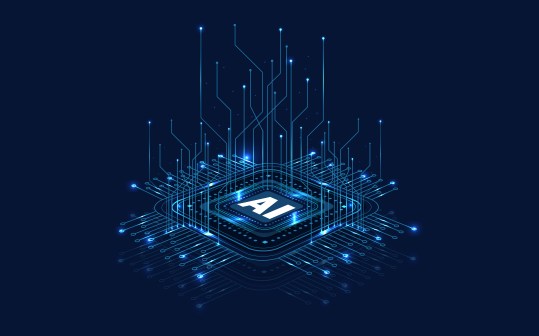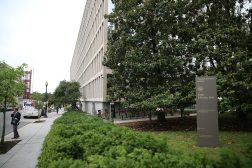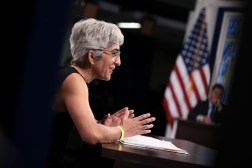2018 in review: Technology modernization meets the federal workforce

Though the White House previously announced plans to both modernize the federal government’s IT infrastructure and reform its workforce in the year prior, 2018 was when the Trump administration laid the foundation to merge the two goals ahead of the anticipated changing nature of work.
With growing interest in the potential of emerging technologies such as artificial intelligence, machine learning and automation, early rumblings of the administration’s plan to retrain the federal workforce emerged in February when the president requested a $50 million budget to reskill current employees to fill critical IT skills gaps.
The Office of Management and Budget’s plan hinged on the increased adoption of AI and automation technologies to meet the growing demand for federal services. As the technologies would carry out more of the repetitive, heavy-labor of daily operations, federal employees would need new skills to both work with the new tools and focus on more “high-value” tasks.
“Employees who perform transactional work that is phased out can shift to working more directly with customers or on more complex and strategic issues,” the budget request said. “Current employees can shift from legacy positions into emerging fields in which the government faces shortages, including data analysis, cybersecurity and other IT disciplines.”
Though federal agencies were already crafting workforce restructuring plans at the time, the budget request previewed the administration’s plans to fill some critical cyber and IT skills gaps by retaining current employees.
Tyson Meadors, the National Security Council’s director of cybersecurity policy, echoed those thoughts in March when he called for an aptitude assessment to determine which federal employees might be able to convert to cybersecurity jobs in an increasingly competitive marketplace.
Roughly two weeks later, the Trump administration unveiled its Rosetta Stone for reshaping the federal government in the President’s Management Agenda. The three-fold plan provides a series of interdependent milestones that focused on workforce reform, IT modernization and data management goals.
The PMA provided the playbook for all the White House’s workforce and technology efforts, laying out quarterly goals to make both reskilling and modernization targets more reachable.
The Office of Personnel Management discussed plans to make it easier for agencies to hire cyber and IT talent in May when officials signaled their plans to offer direct hire authority to fill critical technology skills gaps.
OPM debuted the first rounds of direct hire authority in October when OMB Deputy Director for Management Margaret Weichert became acting director of the human resources agency, allowing agencies to directly recruit for IT, cybersecurity and STEM jobs and provide alternative compensation structures from the General Schedule pay scale to attract new talent.
Federal CIO Suzette Kent formalized the administration’s plans for workforce reskilling last month, announcing the creation of the Federal Cybersecurity Reskilling Academy, a three-month pilot program housed in the Department of Education that will offer training to federal employees outside of the IT and cyber fields.
The academy will select an initial class of students in February, followed by future classes at a later date.
Kent said Dec. 14 that the academy will be one of four reskilling initiatives that the White House will launch in 2019, including education programs to provide current IT professionals with additional training to help address skills gaps, a program offering instruction on robotics process automation and a leadership development course to help build a pipeline of senior technology talent.
So while 2018 marked the beginning of the White House’s plans to address the changing nature of work, its initial investments will continue to develop over the coming year.






